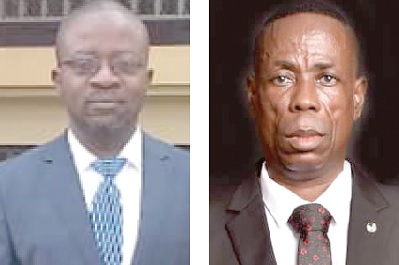Two political analysts have called for urgent steps to carefully examine and eliminate the common trends of vot ebuying and any form of inducements to change voting patterns in the country's electoral system.
That, they explained, could be achieved if state institutions such as the National Commission for Civic Education (NCCE) made deliberate attempts to educate the electorate about the consequences and dangers of vote buying in tarnishing the nation's democratic credentials.
The analysts, a Senior Lecturer at the Department of Political Science, University of Ghana, Dr Kwame Asah-Asante, and a former Political Science Lecturer of the Methodist University, Ghana, Dr Bonsu Osei-Owusu, made the call in separate interviews with the Daily Graphic in Accra.
They were commenting on the outcome of the Assin North by-election.
Three strategies
Dr Asah-Asante pointed out that the just-ended by-election was an indication that “nobody wins any election by way of inducements, intimidation, lies and deception, but only through hard work".
He stated that both parties were guilty of vote buying and that “when you do that, you don't give the people the opportunity to make informed decisions and think for themselves”.
The senior lecturer observed that the National Democratic Congress (NDC) employed three main strategies to win -effective mobilisation and utilisation of human and available logistics; strategy; and campaign messages (propaganda).
He noted that the NDC deployed all their human resources from party foot soldiers to the bigwigs in the party such as former President John Mahama and other executives of the NDC.
In terms of strategy, he argued that the party sent an advanced team far ahead of the scheduled date for the elections to map out strategies to win, using the party bigwigs including Elvis Afriyie Ankrah.
The third tool, Dr Asah-Asante said the NDC used was the “bandwagon technique" where the party made the electorate to understand that despite the “raw deal" handed down to their candidate, the right people were in town to right the wrongs.
Dr Asah-Asante, who is also the Director of the Centre for European Studies at the University of Ghana, stated that the NDC used other tools to their advantage including the testimonial strategy.
The senior lecturer said the opposition party also used electoral technology to monitor the results while they were also vigilant throughout the electoral process until the end.
In their campaign messages, he observed that the NDC played the economy card, citing the economic challenges facing the nation as due to mismanagement by the ruling NPP, which by far worked to their advantage.
Sympathy votes
Dr Osei-Owusu, for his part, said the NDC won with a larger margin partly because of the popularity of its candidate and the sympathy votes he won.
He said both parties traded accusations and counter-accusations of distributing money to the electorate, which must be condemned in no uncertain terms.
He said there was a need for security agencies, particularly the police, to arrest and prosecute candidates or politicians that engage in distributing money just to buy votes, to serve as a deterrent to others.

